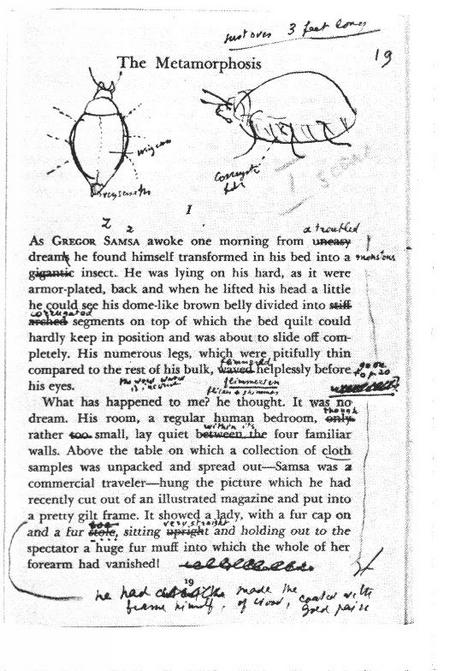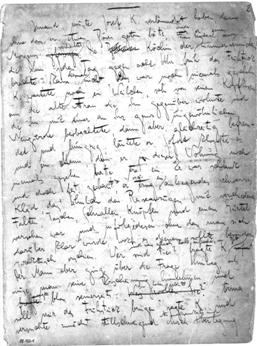short stories by a master of modernism
A Hunger Artist is a collection of short fictions by one of the most remarkable writers of the early twentieth century. Franz Kafka was a completely original writer. He’s classified as a novelist and writer of short stories, and yet most of his novels were not finished, and many of his short works don’t have normal characters or recognisable stories. Many of them are not continuous, logical narratives that we expect in work classified as fiction. Much of his writing is closer to being philosophic meditations or the exploration of bizarre images and metaphors. Yet such is the power of his symbol-making and his imagination that there is really nowhere else for him to be categorised.
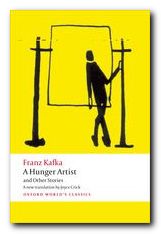 Some of his stories are as short as one-sentence aphorisms or the exploration of curious metaphors, striking images, and parables that present one idea in the guise of another. In one story a man is a bridge, stretched across a chasm, terrified of the responsibility he bears. In another a man spends his entire life at a gateway, pleading to be admitted to the Law. On the point of his death he asks the gatekeeper why nobody else has ever requested entry. The gatekeeper tells him “Nobody else could be granted entry for this entrance was meant only for you. I shall now go and close it.”
Some of his stories are as short as one-sentence aphorisms or the exploration of curious metaphors, striking images, and parables that present one idea in the guise of another. In one story a man is a bridge, stretched across a chasm, terrified of the responsibility he bears. In another a man spends his entire life at a gateway, pleading to be admitted to the Law. On the point of his death he asks the gatekeeper why nobody else has ever requested entry. The gatekeeper tells him “Nobody else could be granted entry for this entrance was meant only for you. I shall now go and close it.”
Kafka was a writer of great contradictions: the semi-mystical believer who doubted everything; the prudish sceptic of personal relationships who consorted with prostitutes; the neurasthenic who was devoted to sunbathing and swimming; the self-denying ascetic who was described by one of his friends as ‘the best-dressed man I have ever known’.
He wrote a great deal about animals, birds, insects, and rodents which nevertheless have human thought processes. In one of his most famous stories The Metamorphosis a young travelling salesman wakes up to find that he has changed into a giant insect. Another story features the effect on a small village when it is visited by a giant mole. In The New Advocate a horse is appointed as a lawyer, and A Report to an Academy is the transcript of a lecture in which the speaker describes his former life as an ape.
All the now-familiar elements of Kafka’s world are tried out in these stories, parables, and fragments – the inaccessible palace or castle, the closed gate, incomprehensible foreigners, the remote unknowable figure of Authority, and the unspecified menace from without. The essence of a Kafka story is often an inexplicable mystery, a paradox, or a vague un-named threat. He establishes a situation then immediately undermines it by introducing the opposite or a contradiction
It was a beautiful day and K. intended to go for a stroll. But he had scarcely taken two steps before he was already in the graveyard.
In fact K. finds that he is a witness to his own burial. A story such as The Burrow combines the animal motif with a study in paranoia when an unspecified rodent describes the building of a giant network of tunnels against some un-named exterior threat. But the construction is eventually so elaborate that maintaining it becomes a threat in itself.
This collection is made up of some of his earliest and his last published works – from the almost journalistic Aeroplanes at Brescia (1909) to Josephine, the Singer or The Mouse People (1924) completed the year of his death. It also contains some of his most famous and anthologised stories – Investigations of a Dog, The Burrow, Before the Law, and The Great Wall of China.
This volume makes an excellent starting point for anyone who has not tackled Kafka before. The translations in these new Oxford University Press editions are recently commissioned, and the texts come with an extensive critical apparatus of introductory essay, explanatory notes, biographical details, and lists of further reading.
© Roy Johnson 2012
Franz Kafka, A Hunger Artist and Other Stories, Oxford: Oxford University Press, trans. Joyce Crick, 2012, pp.218, ISBN: 0199600929
More on Franz Kafka
More on the novella
More on literary studies
More on short stories
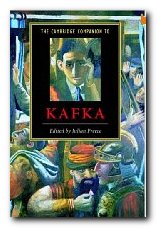 The Cambridge Companion to Kafka offers a comprehensive account of his life and work, providing a rounded contemporary appraisal of Central Europe’s most distinctive Modernist. Contributions cover all the key texts, and discuss Kafka’s writing in a variety of critical contexts such as feminism, deconstruction, psycho-analysis, Marxism, and Jewish studies. Other chapters discuss his impact on popular culture and film. The essays are well supported by supplementary material including a chronology of the period and detailed guides to further reading, and will be of interest to students of Comparative Literature.
The Cambridge Companion to Kafka offers a comprehensive account of his life and work, providing a rounded contemporary appraisal of Central Europe’s most distinctive Modernist. Contributions cover all the key texts, and discuss Kafka’s writing in a variety of critical contexts such as feminism, deconstruction, psycho-analysis, Marxism, and Jewish studies. Other chapters discuss his impact on popular culture and film. The essays are well supported by supplementary material including a chronology of the period and detailed guides to further reading, and will be of interest to students of Comparative Literature.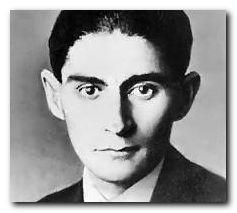
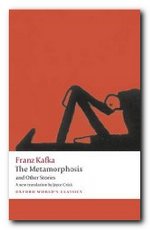 Metamorphosis
Metamorphosis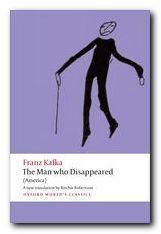 Amerika
Amerika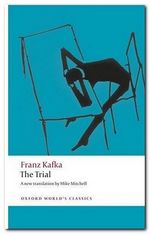 The Trial
The Trial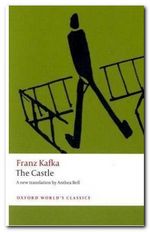 The Castle
The Castle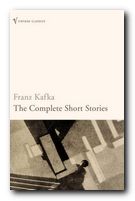 The Complete Short Stories
The Complete Short Stories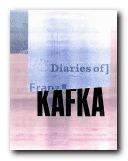 The Diaries
The Diaries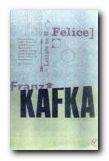 Letters to Felice
Letters to Felice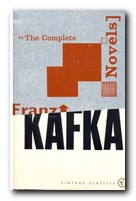 The Complete Novels
The Complete Novels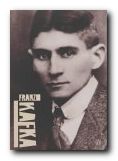 Franz Kafka: Illustrated Life is a photographic biography that offers an intimate portrait in an attractive format. A lively text is accompanied by over 100 evocative images, many in colour and some previously unpublished. They depict the author’s world – family, friends, and artistic circle – together with original book jackets, letters, and other ephemera. An excellent starting point for beginners which captures fin de siecle Europe beautifully.
Franz Kafka: Illustrated Life is a photographic biography that offers an intimate portrait in an attractive format. A lively text is accompanied by over 100 evocative images, many in colour and some previously unpublished. They depict the author’s world – family, friends, and artistic circle – together with original book jackets, letters, and other ephemera. An excellent starting point for beginners which captures fin de siecle Europe beautifully. Kafka: A Very Short Introduction introduces Kafka’s life and cultural background, then traces a number of themes in his best-known works. It’s in an interesting and attractive format – a small, pocket-sized book, stylishly designed, with illustrations, endnotes, suggestions for further reading, and an index. If you’ve not studied Kafka before, this will give you pointers on what to look for. It covers Kafka’s biography, then interpretations of his work – including one quite original approach concerning the relationship between his writing and his body.
Kafka: A Very Short Introduction introduces Kafka’s life and cultural background, then traces a number of themes in his best-known works. It’s in an interesting and attractive format – a small, pocket-sized book, stylishly designed, with illustrations, endnotes, suggestions for further reading, and an index. If you’ve not studied Kafka before, this will give you pointers on what to look for. It covers Kafka’s biography, then interpretations of his work – including one quite original approach concerning the relationship between his writing and his body.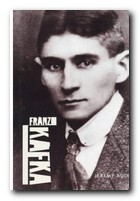

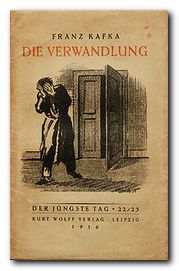 Later, his parents take in lodgers and use Gregor’s room as a dumping area for unwanted objects. Gregor becomes dirty, covered in dust and old bits of rotten food. One day, Gregor hears Grete playing her violin to entertain the lodgers. Gregor is attracted to the music, and slowly walks into the dining room despite himself, entertaining a fantasy of getting his beloved sister to join him in his room and play her violin for him. The lodgers see him and give notice, refusing to pay the rent they owe, even threatening to sue the family for harboring him while they stayed there. Grete determines that the monstrous vermin is no longer Gregor, since Gregor would have left them out of love and taken their burden away. She suggests that they must get rid of it. Gregor retreats to his room and collapses, finally succumbing to his wound, and dying alone.
Later, his parents take in lodgers and use Gregor’s room as a dumping area for unwanted objects. Gregor becomes dirty, covered in dust and old bits of rotten food. One day, Gregor hears Grete playing her violin to entertain the lodgers. Gregor is attracted to the music, and slowly walks into the dining room despite himself, entertaining a fantasy of getting his beloved sister to join him in his room and play her violin for him. The lodgers see him and give notice, refusing to pay the rent they owe, even threatening to sue the family for harboring him while they stayed there. Grete determines that the monstrous vermin is no longer Gregor, since Gregor would have left them out of love and taken their burden away. She suggests that they must get rid of it. Gregor retreats to his room and collapses, finally succumbing to his wound, and dying alone.